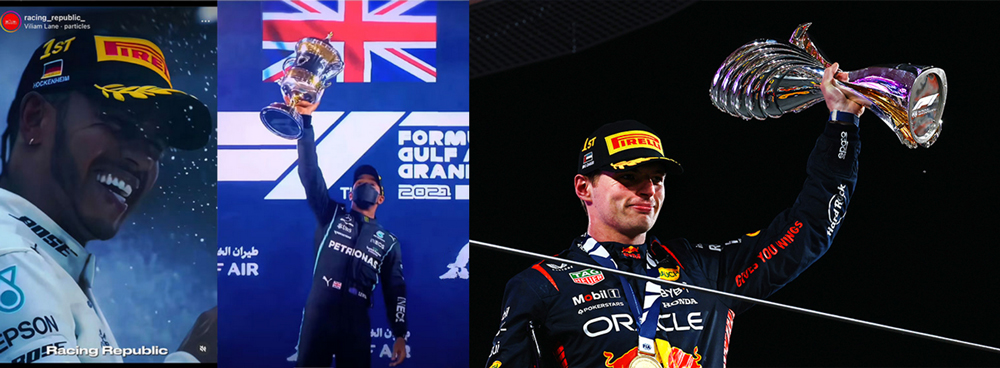The Race That Started It All: F1’s Historic Debut
When Was the First Formula 1 World Championship Race Held?
The race that started it all for F1 was the 1950 British Grand Prix, held at the Silverstone Circuit on May 13, 1950. This event marked the beginning of the first-ever Formula 1 World Championship, which saw Giuseppe "Nino" Farina win the inaugural Drivers' World Championship title.
Why this race mattered
Before 1950, Grand Prix racing had a rich history, but it was scattered—prestigious events, legendary cars, superstar drivers, no unified global title. In 1950, the FIA stitched it together with a points-paying World Championship for Drivers. Silverstone got the honor of firing the starting gun.
Scene-setter: Silverstone in 1950
Forget the gleaming complexes you know today. Silverstone was a former RAF airfield with a super-fast perimeter layout, straw bales and oil drums marking the track, and vast, blustery runways forming sweeping corners. The royal seal of approval was literal: King George VI, Queen Elizabeth, and Princess Margaret watched from the grandstand as a post-war Britain—motor-mad and hungry for spectacle—packed the place.
The fascinating facts about the very first F1 race
Details of the Historic F1 Debut
- Event: The first Formula 1 World Championship race
- Date: 13 May 1950
- Race: British Grand Prix (Round 1 of the inaugural World Drivers’ Championship)
- Circuit: Silverstone Circuit, an ex-Royal Air Force station in the UK. (airfield perimeter layout)
- Distance: 70 laps x 4.649 km (2.888 miles) = 325.4 km (202.4 miles)
- Winner: Giuseppe “Nino” Farina driving for Alfa Romeo (Alfa Romeo 158)
- Podium: 1) Farina, 2) Luigi Fagioli, 3) Reg Parnell (all Alfa Romeo)
- Fastest Lap: Nino Farina (earning a bonus point under 1950 rules)
- Significance: This race officially launched the Formula 1 World Championship, a competition that continues to this day and is considered the pinnacle of motorsport
Key Figures
Giuseppe Farina: The first winner of the Formula 1 World Championship.
Juan Manuel Fangio and Luigi Fagioli: Teammates of Farina at Alfa Romeo who finished behind him in that first race.
Legacy
The British Grand Prix remains the oldest race on the Formula 1 World Championship calendar.
The 1950 race was the only time a reigning British monarch has attended a Formula 1 motor race.
The cars and the cast
Alfa Romeo rolled in as the juggernaut with the 158 “Alfetta,” a compact 1.5-liter supercharged missile with roughly 350 hp. Their driver lineup was all-star: Nino Farina, Juan Manuel Fangio, and Luigi Fagioli—three future or soon-to-be legends. Privateer Maseratis and sturdy Talbot-Lagos filled much of the grid, alongside assorted British specials. Notably absent: Ferrari, who sat out the opener and joined from Monaco onward.
Qualifying and the front row
Farina set the tone with pole position. The front of the grid was a wall of scarlet Alfas, their shrill superchargers promising trouble for anyone dreaming of an upset. The field behind them was plucky, varied, and outgunned.
Race day: how it unfolded
- The launch: The Alfas blasted away, their pace in a different postcode from the rest.
- Strategy in 1950: With supercharged thirst and pre-slick tires, pit stops for fuel and rubber were part of the plan—no refueling bans back then.
- A very British third place: Local hero Reg Parnell survived a bizarre moment—he struck a stray hare, dented his nosecone, and still brought his Alfa home P3 to a roar from the crowd.
- Heartbreak for Fangio: The great Argentine looked ominous on pace but retired late with engine trouble.
- The flag: Farina controlled the tempo, bagged fastest lap, and took the chequered—nine points for the win, one more for that fastest lap. The first leader of the first championship.
What made it “the first”?
- The championship: This wasn’t just another big race; it was Round 1 of a points-based, season-long World Championship governed by the FIA.
- The rules: The new Formula One regulations allowed 1.5L supercharged or 4.5L naturally aspirated engines—an echo of pre-war formulas, formalized for a global title fight.
- The calendar: The 1950 championship included six European races plus, quirkily, the Indianapolis 500 as a points round, even though it ran to different traditions and had almost no crossover with European teams.
Context you’ll want in your back pocket
- Earlier F1-style races did happen from 1946–49 under “Formula A/Formula One” rules, but they weren’t part of a world championship. That’s why Silverstone 1950 is the official starting gun.
- Ferrari’s absence meant Alfa’s dominance went largely unchecked here. The true Farina–Fangio–Ferrari–Alfa power struggle heated up as the season unfolded.
- Farina ultimately won the 1950 World Championship for Alfa Romeo, with Fangio beginning his own dynasty the very next year.
Why this debut still resonates
- A template was set: elite drivers, manufacturer might, strategic pit work, and a global crown at stake.
- Silverstone’s identity took root: fast, flowing, and fiercely British—a cathedral of speed that still opens many modern seasons.
- The mythology began: From hay bales and oil drums to hybrid monsters and halo cockpits, the lineage traces back to that windy spring afternoon.
Fun nuggets
- Royal attendance made headlines and underlined motorsport’s newfound prestige in post-war Britain.
- Parnell’s hare incident is one of those wonderfully odd racing footnotes—unlucky for the hare, lucky for British morale.
Bottom line
The first Formula 1 World Championship race was held at Silverstone on 13 May 1950. It was a thundering Alfa Romeo masterclass, a nation’s celebration of speed, and the birth certificate of the sport we follow today.
Up Next



